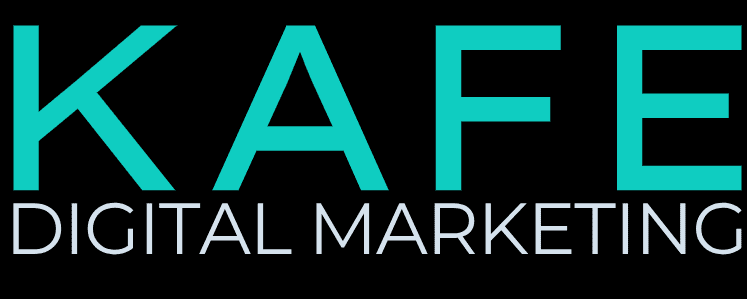We all want to be self-sufficient, but there comes a time when we have to admit that we need outside help. For businesses when we have that realization it’s time to call in a consultant. The thought of hiring a consultant gives many managers the heebee jeebees. Why?
No one wants to be the person who hires a consultant who then proves to be a dud. On the other hand, if you’ve hit a wall, how will you get over it and back into growth mode? The answer is you have to set your criteria for a consultant BEFORE you start interviewing anyone.
#1 – Can the consultant actually do the work?
Can the consultant do the work? Seems obvious, but there are some traps. For instance, I remember when starting out as a consultant in partnership with another (who was also new to the role), submitting a tender for a fairly large job and being selected in the final few for interview.
Individually, we’d had some experience in the type of work, but not as a partnership, nor had we worked in the prospective client’s industry. We won the job. Why? The client saw in us some creativity and freshness that was not evident in our competitors. However, this was an unusual client. Normally, I would not suggest taking on a consultant (like us) who has not had the depth nor breadth of experience in the project. So, unless one of your criteria is “freshness”, in terms of selecting for experience here are some tips:
• What are your specifications? Be very clear on the outputs you will require in the project. These should always be measured in terms of quality, quantity, time and cost. Use these output criteria to compare consultants.
• Who has recommended this consultant? Check their references – ask for the contact of the last job they did. When checking references, use your above “output criteria” as a guide.
• Are you looking for someone to implement solutions to a problem you have identified, or are you looking for someone to help you identify and clarify the problem? Or both? Sometimes it can be useful to split the project into these two parts.
• In discussion with the prospective consultants, do they really give you the time to say what you want before jumping to conclusions? If they appear to “have all the answers”, chances are they do not listen very well.
• Does their suggested solution appear to be specifically designed for you or is it a “one size fits all”? Be wary if it is not specifically designed to meet your project criteria.
• Do they explain the things they can’t do as well as those they can? This is always a good test of integrity, truthfulness and reliability.
• Is their initial response to your request up to your quality standards, sufficiently detailed (but not overly so) to make a decision, and within your time expectations?
• Does the consultant have depth of expertise in the subject matter and breadth of expertise in its application?
• Ask the consultant what is unique about him or her? What makes them stand out from all the other consultants you might choose?
#2: Will the consultant fit in with your company culture?
Will the consultant fit in with the people they will be working with? This is a critical implementation issue, as whilst they might be able to do the work, if they can’t work harmoniously with the people, the results will be less than optimal.
For instance, we once worked on a major government project (total budget in excess of M$43) where the client continually kept us at arm’s length (for example, on a residential workshop, we were not encouraged to eat or mix socially with the client project leaders). We met the output requirements for the client, but had we been allowed to work more closely with the client, they would have received a lot more value added service. In this case, the client should have selected another consultant.
The following tips will help ensure you get the right client/consultant match.
• Is the consultant likely to be able to gain the respect and trust of your key stakeholders?
• Could you trust this person (people)?
• What is the process they will use? i.e, How will they work within the organisation? How will they be seen? Try to visualize the consultant working with you and the other people as they complete the project. Will it work? Is it likely to be a good partnership?
• Who specifically (from the consultancy) will be working on the project and what will be their role? For example, will the people you are interviewing be carrying out the work? Be wary of consultancies that have “front people” that win the jobs, then send in less experienced people to do the work.
• Ask the consultant to describe what a “good working relationship” looks like to them. Is the description the consultant gives you of a “good working relationship” likely to be, and to be seen to be, a partnership?
#3: Is your consultant a good teacher?
Will you be able to learn from this consultant? One of the reasons you hire a consultant is that you (or your organisation) does not have the depth nor breadth of experience to successfully carry out the project. One of your aims should be to increase your own experience through this project. For example:
• Why did you decide to employ a consultant? What were the gaps you could not fill internally?
• What will you be likely to learn from this consultant?
• Will you increase your knowledge of both process management (how the consultant works) as well as content management (their area of expertise)?
• Will the consultant strengthen and support your role in the organisation?
Finally, if all of your criteria have been met and you cannot decide between two apparently equal consultants, consider setting them a small task or part of the project to complete as part of the selection process. For example, some years ago we were in competition with another large consultancy for a sizable project with an initial budget in excess of M$1.
The client could not decide between the two of us, so he asked us each to undertake a small project (for which he paid us both), which would ultimately become part of the larger project. When we each completed the small project, he had an excellent idea of both our capability and the manner in which we worked. After all, isn’t the final selection criterion is actually trying the consultant out?
Oh, yes. In case you’re wondering, we won the job!
Source: http://nationallearning.com.au/how-to-select-a-consultant-the-three-imperatives/
Photos by rawpixel on Unsplash


Recent Comments